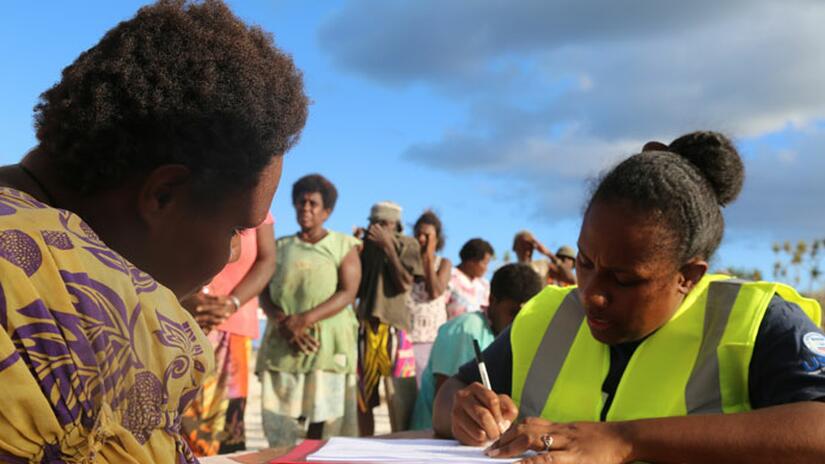The International Federation of Red Cross and Red Crescent Societies (IFRC) Disaster Law Programme has worked in the Pacific since 2010, starting with the review of Vanuatu’s legal and policy framework for disasters in partnership with the Government of Vanuatu and Vanuatu Red Cross.
When Tropical Cyclone Pam tore through Vanuatu in 2014, shortly after the review was finalised, Vanuatu issued its first-ever request for international assistance, to which the response was beyond expectation, and the country was flooded with uncoordinated aid and assistance. Described as a ‘wakeup call’ by the Government of Vanuatu for international disaster law legal reform, it was a catalyst for Vanuatu and the rest of the Pacific.
An IFRC disaster law advisor was quickly deployed to support the government with regulatory barriers arising from the response, and in the weeks, months and years that followed, the journey to review, reform and operationalise laws and policy relating to disaster management began in Vanuatu. Since then, IFRC’s Disaster Law Programme has reached across the Pacific Ocean to work in fifteen Pacific countries.
Today, we near the completion of the review of Fiji’s National Disaster Management Act in partnership with the Government of Fiji and Fiji Red Cross. This is a significant piece of work that will support the national disaster risk management system to be proactive and focused on disaster risk reduction, a shift from a traditional reactive, response-based model. The review includes the adoption of a cluster system, establishment of subnational administration, regulation of international aid, the strengthened role of a disaster service liaison officer and legal facilities for recognised NGOs and humanitarian organisation. Consultations for the review have been with diverse groups from across Fiji, ensuring that no one is left behind in legislation and in the decision-making process.
IFRC’s Disaster Law Programme in the Pacific brings technical experience and expertise, but equally important is the unique way in which we work – long term programming, support that is localised and contextualised and coordination that brings everyone together.
For countries like Vanuatu, where significant disaster law reform has been carried out, humanitarian responses are coordinated, effective, and locally-led, with aid getting to those that need it most – a must for the number one ranked disaster risk country in the world.
As the only international organisation mandated to provide disaster law technical advice, there is an increasing demand for our support and a widened scope that includes protection and inclusion, displacement, climate change, holistic support to governments on risk governance, and now, COVID-19.
Pacific communities are at the frontline of disasters and climate change, and with the arrival of COVID-19 to their shores, supporting governments to have effective disaster laws and well-functioning disaster risk management systems in place which can respond to a multitude of hazards, is crucial for a humanitarian structure that can save lives.
- 15 Pacific countries working with the Disaster Law Programme
- 15 disaster law research projects
- 14 countries with disaster law Influenced or in the process of influencing
- 10 Pacific governments currently engaging in disaster law processes

